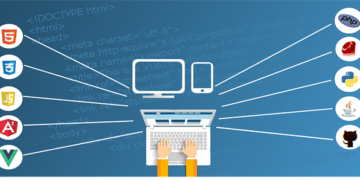Maybe you’ve heard of the five Cs of credit: character, capacity, capital, collateral, and conditions. But what do they really mean? And how do the five Cs of credit affect you when you’re trying to get a loan?
Here’s what you need to know.
Character: You might get excited about hearing your character is going to be the first thing lenders look at when determining your creditworthiness. You’re a good person, so they should be more than willing to help you with a loan, right?
While it would be great if all the good people in the world had access to the credit they need, this, unfortunately, isn’t what “character” implies. Instead, character refers to your credit history. How well have you done paying back debt in the past? To a lender, that’s a big sign of having the right character to receive a loan. If you have a rocky credit history, that’s going to reflect negatively on your ability to get desirable loan terms.
Capacity: This isn’t about your capacity to receive a loan. Instead, capacity refers to your debt-to-income ratio, and how that can be indicative of whether or not your finances can handle more debt.
The debt-to-income ratio is a common measure used by lenders to determine how likely someone is to repay a loan. If you already have a lot of debt, but don’t make a ton of money, lenders are going to see that as a liability. While there’s no overarching rule for what’s an acceptable debt-to-income ratio many lenders and certain government-sponsored agencies have standards.
If your debt-to-income ratio is on the higher side — 40 percent or greater — you might want to consider some more aggressive options for reducing your debt. One route is debt consolidation with bad credit, which can provide a path out of overwhelming debt payments.
Capital: Capital is the amount of money you have access to for making a purchase or paying back your debt. A lender is going to be wary of giving a lot of money to anyone who has almost no money in the bank.
Additionally, some forms of loans, such as mortgages, require a down payment. Your ability to make this down payment is directly tied to your access to capital. If you’re unable to come up with the necessary amount of money on the front end, lenders aren’t going to work with you.
Collateral: Things happen. And when they do, lenders want you to have collateral so they don’t get burned too hard. Collateral is simply something you as a borrower put up as an incentive. When it comes to auto loans or mortgages, the car or house will stand in as collateral. This is called a secured loan, as the lender has the security of collateral if the borrower doesn’t pay them back.
Conditions: While this final C sometimes goes overlooked, it’s important nonetheless. Conditions determine the actual contractual obligation. This includes things such as the amount of the principal, as well as the length and interest rate of the loan.
It’s the lender’s responsibility to do its due diligence to decide if a borrower will be able to meet the conditions of a loan. If they have doubts, it’s likely the lender won’t want to hand over the money.
There’s a lot to think about when you’re trying to get a loan. Focusing on the five Cs will help you understand what lenders are thinking when determining whether or not to extend you a loan.




























































